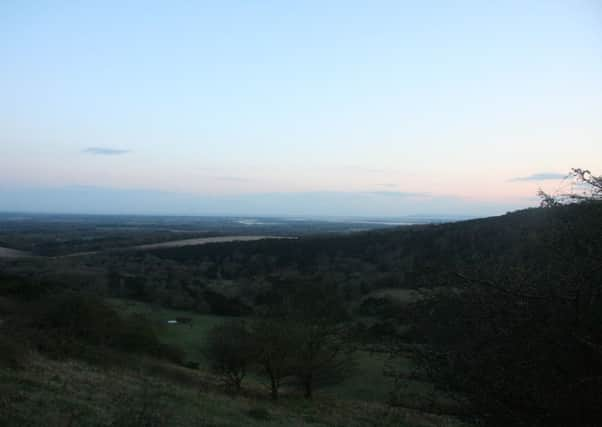‘Huge solar farm’ could be built in the South Downs, says CPRE Horsham District chair


The comment was made after MP Nick Boles was reported in the national press last week as suggesting the coalition government was looking to relax development restrictions in national parks.
The chair, Dr Roger Smith, said: “Even under the present regulations, the South Downs is subject to the threat of a huge solar farm development.
Advertisement
Hide AdAdvertisement
Hide Ad“This is the kind of development that could be pushed through if National Parks were given a duty to promote economic growth.”
The CPRE chair said Nick Boles intends to impose ‘decision-by-Government-diktat regime’ on national park communities, including the South Downs’s.
Dr Smith said: “Clearly, Mr Boles intends to impose the same inequitable decision-by-Government-diktat regime on communities in the National Parks, including the South Downs National Park.”
Dr Smith told this newspaper: “Far from national park being museum pieces, they are exemplars of sustainable development.
Advertisement
Hide AdAdvertisement
Hide Ad“National Parks are already some of the most economically successful parts of rural England. There is already plenty of the economic growth Nick Boles is keen to see.”
He added: “National Park Authorities also have a duty to ‘seek to foster the economic and social wellbeing of local communities within the National Parks’, and we have seen no evidence to suggest they are not doing this in England.”
The chair warned that developers in Horsham District have already submitted speculative planning expecting them to be permitted on appeal by Mr Boles’s enforcers.
He said: “In Horsham District developers outside of the South Downs National Park are submitting speculative planning applications that are contrary to the wishes of communities in expectation that their applications will be permitted on Appeal by Mr Boles’ enforcers – the Planning Inspectorate should Horsham District Council refuse them.”
Advertisement
Hide AdAdvertisement
Hide AdThis comes as Nick Herbert, MP for Arundel and South Downs, stressed to his constituents ‘we are not going to see house building all over the South Downs National Park’ in this week’s County Times.
Mr Herbert said he would ‘strongly oppose’ any suggestions that the duty to conserve parks would come second to securing economic well-being.
He told the County Times: “We are not going to see house building all over the South Downs National Park, and the Minister did not say that there should be a relaxation of planning controls in parks, as press reports implied.”
The MP continued: “It was the backbench MP who moved the debate who suggested that the duty to conserve parks should no longer be given primacy over the duty to secure economic well-being.
Advertisement
Hide AdAdvertisement
Hide Ad“I would strongly oppose such a change, which would undermine the essence of landscape protection in national parks, and the Government is doubtless aware of the alarm that it would provoke.”
He added: “National Parks are, as the Minister said, the crown jewels of our landscape. I strongly believe that they deserve, and am confident that they will retain, the highest levels of landscape protection.”
Meanwhile Trevor Beattie, the chief executive of the South Downs National Park Authority, said the authority was ‘keen’ to take part in the conversation brought up in last week’s debate.
He told this newspaper that the park authority’s close partnership with its local authorities was the ‘best model’ for it.
Advertisement
Hide AdAdvertisement
Hide AdMr Beattie said: “The number of authorities and the level of inclusion is such that I think it’s the best model [for the South Downs].”
He explained that around 90 per cent of planning decisions were handed back to their respective local authorities, leaving only the most contentious decision to the national park decision-makers.
The chief executive added: “I think you need to look at the system that best fits each park.
“Democracy is about assessing what people want and meeting local needs and not about producing abstract templates.”